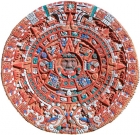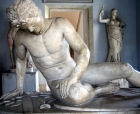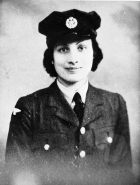Chronological Understanding
Sequencing, events, stories, pictures and periods over time to show how different times relate to each other and contribute to a coherent understanding of the past. You don’t have to teach topics in chronological order but need to relate the topics you teach to their chronological context.
-

Primary History and planning for teaching the Olympics - four curricular models
ArticleClick to view -

William Brookes and the Olympic Games
ArticleClick to view -

How to teach chronology
ArticleClick to view -

Children's Thinking: Developmental psychology and history education
ArticleClick to view -

Learning to engage with documents through role play
ArticleClick to view -

Using classic fiction to support the study of childhood in Victorian times
ArticleClick to view -

Doing history in the early years and foundation stage
ArticleClick to view -

'Doing Local History' through maps and drama
ArticleClick to view -

A history of the world - 100 objects that tell a story
ArticleClick to view -

Pride in place: What does historical geographical and social understanding look like?
ArticleClick to view -

Cross Curricular Project on a famous person
ArticleClick to view -

A Vision of Britain Through Time
ArticleClick to view -

Chronology: blank timelines
ArticleClick to view -

Helping students make sense of historical time
ArticleClick to view -

Teaching with Meaning: Supporting Historical Understanding in the Primary Classroom
ArticleClick to view -

Enhancing temporal cognition: practical activities for the primary classroom
ArticleClick to view -

Twist in the tales
ArticleClick to view

